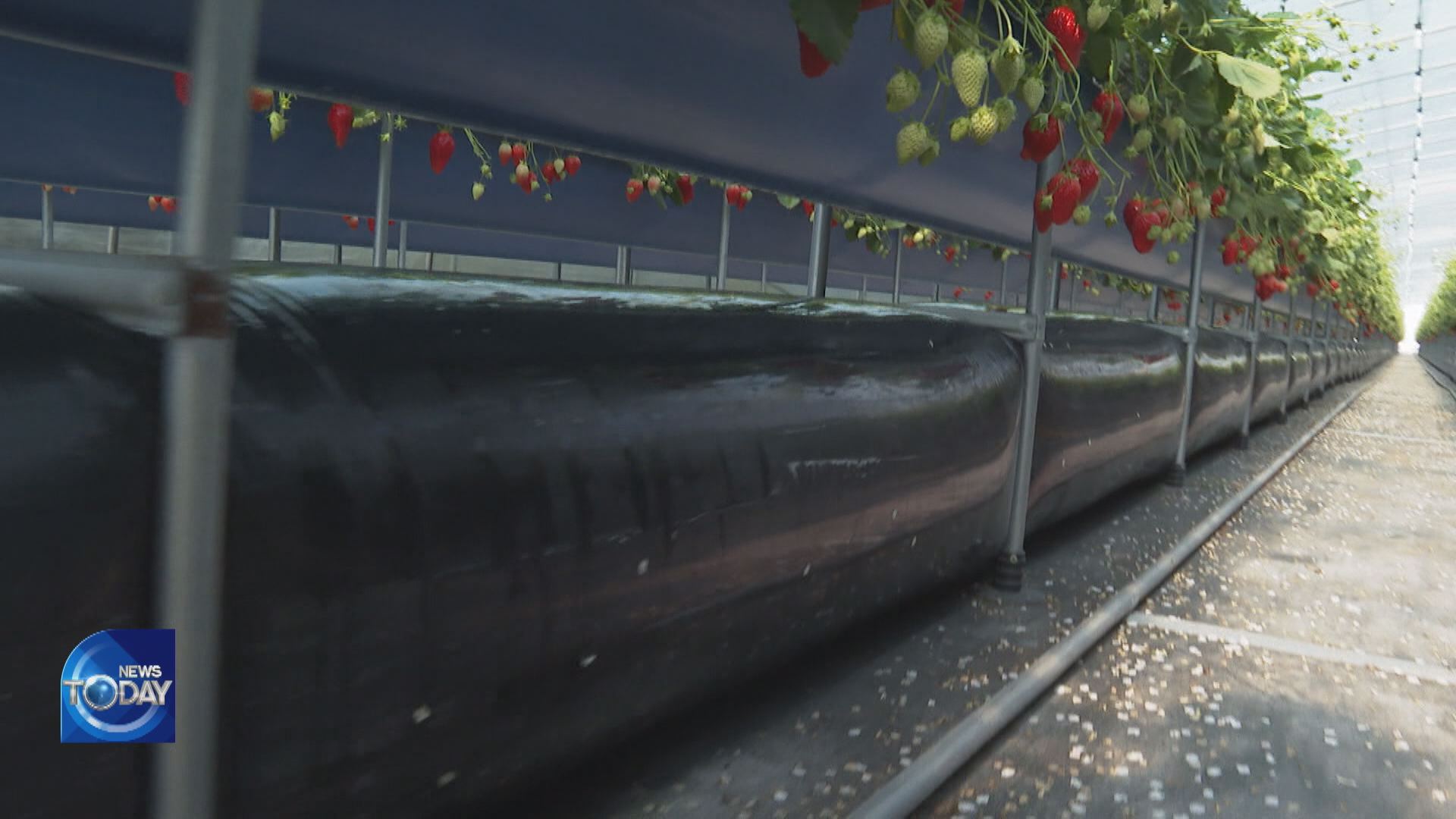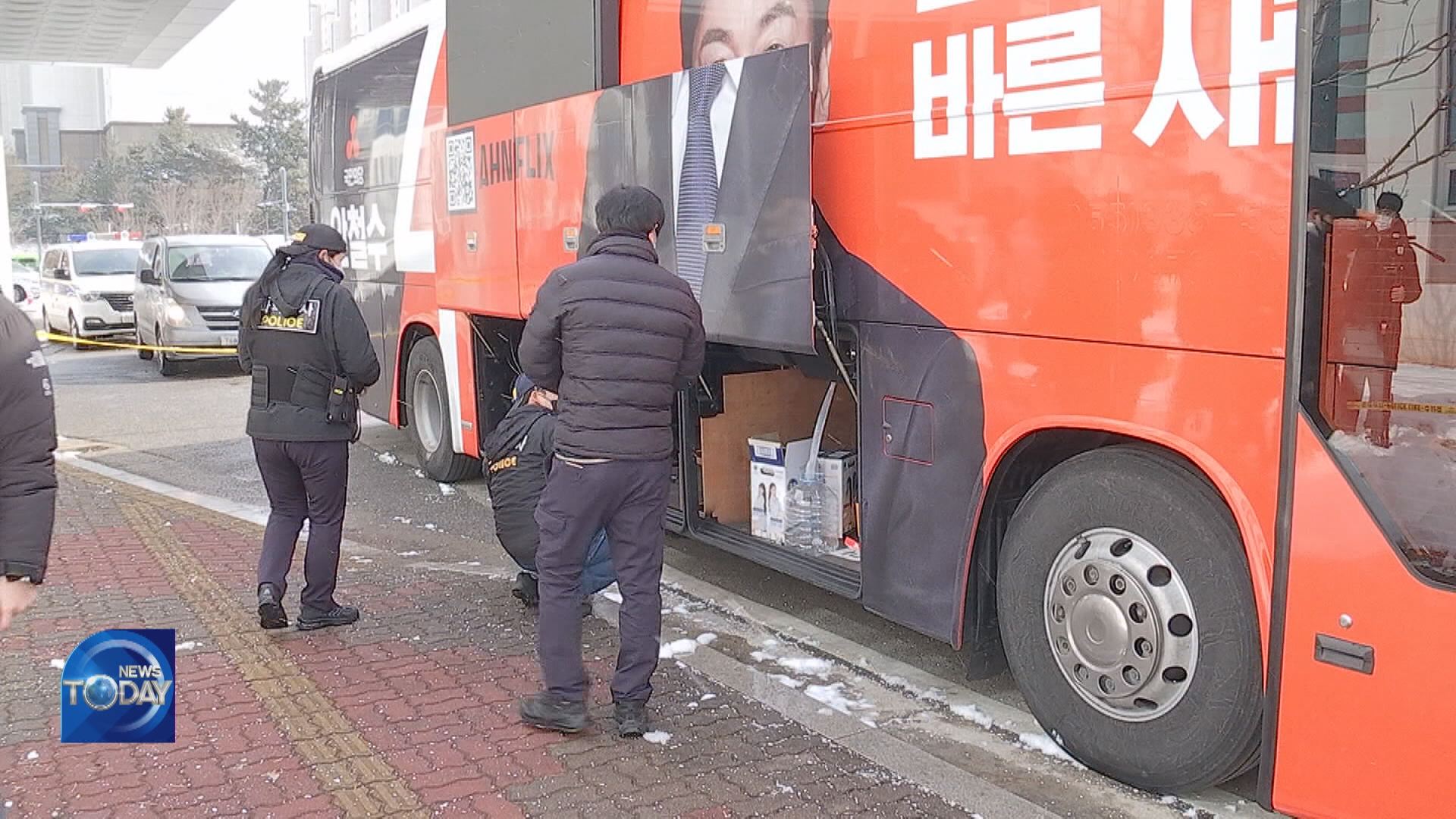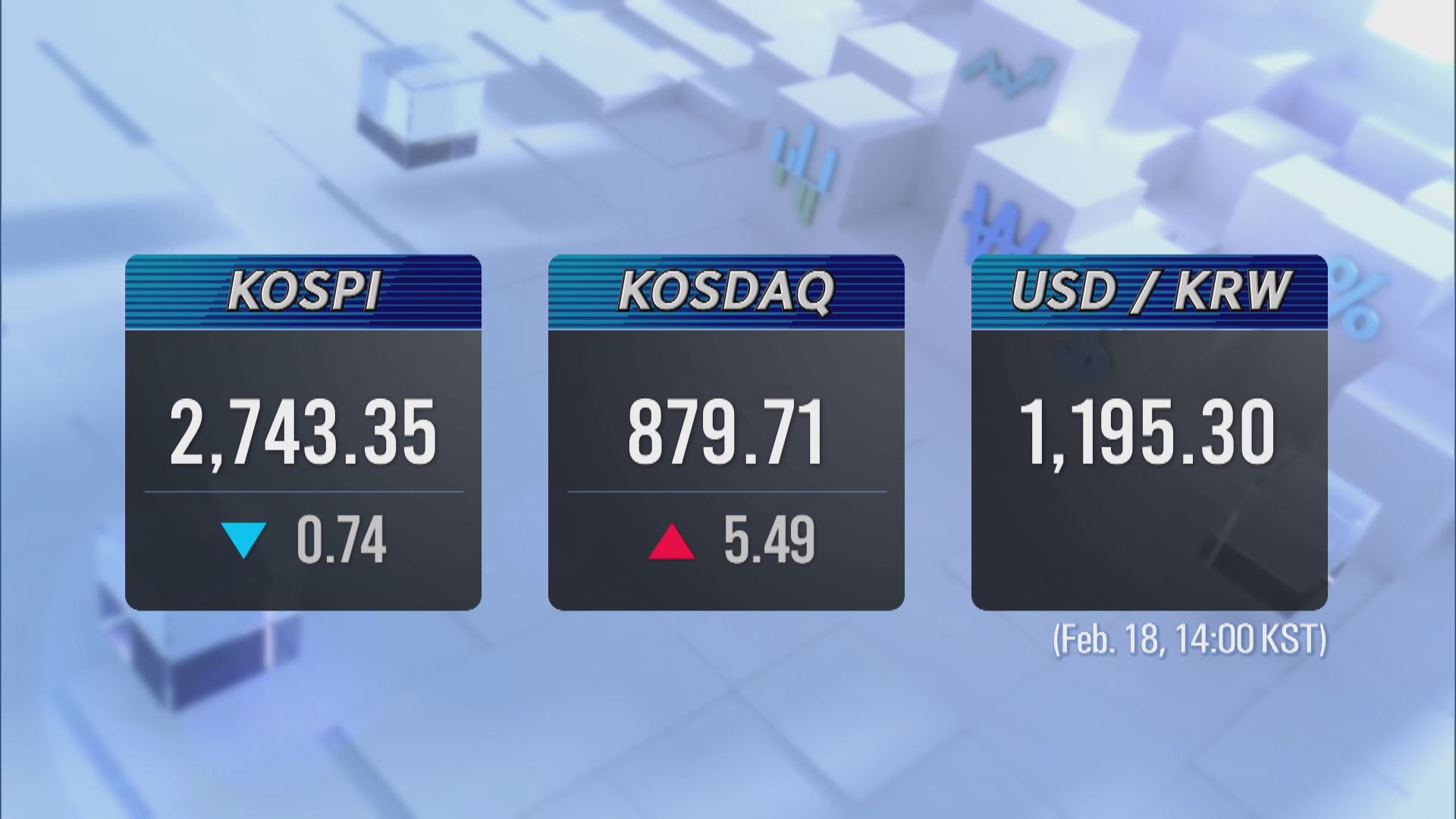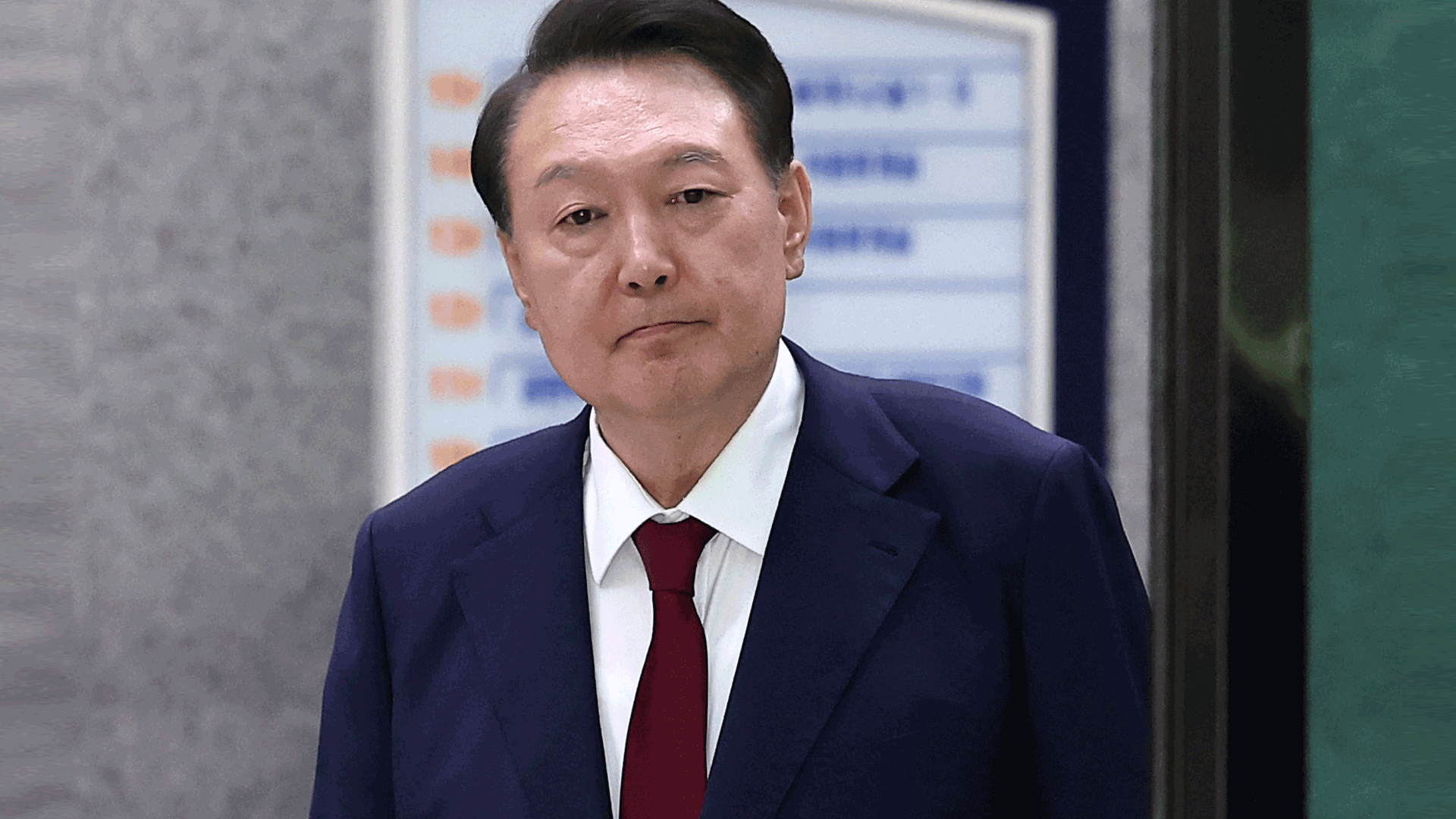FARMERS STRUGGLE AMID SEVERE DROUGHTS
입력 2022.02.18 (15:39)
수정 2022.02.18 (16:45)
읽어주기 기능은 크롬기반의
브라우저에서만 사용하실 수 있습니다.
[Anchor Lead]
The amount of precipitation in Korea last month was the lowest in half a century. Farmers are struggling amid severe droughts. Strawberry farms in Gyeongsangnam-do Province have to use electric heaters to warm their greenhouses as groundwater for heating has all dried out.
[Pkg]
A greenhouse growing strawberries in Jinju, Gyeongsangnam-do Province. This year, the berries fall short in sweetness and aesthetics, uneven and far from ideal. It's because groundwater for heating the greenhouse has dried out due to severe droughts. To keep the optimal temperature of 18 degrees Celsius inside the greenhouse, the farmer has to turn on an oil boiler. This meant double the expenses just for heating compared to last year.
[Soundbite] Kwon Jae-jung(Strawberry farmer) : "This year, we're facing severe water shortages, which make it impossible to grow crops without heating devices at nighttime."
This greenhouse in Sancheong, Gyeongsangnam-do Province, is heated with electric heaters, which consumes less power than boilers.
[Soundbite] Lee Byung-wook(Strawberry farmer) : "We ran out of water a month earlier than in previous years. We have to rely on electric heaters. Using oil boilers is too expensive because of high oil prices."
In January the amount of precipitation in Busan, Ulsan and Gyeongsangnam-do Province recorded 0.1mm and only 0.3 rainy days, the lowest in roughly half a century. The Ministry of Agriculture, Food and Rural Affairs is preparing measures to supply water to farms cultivating winter crops such as garlic and onions.
The amount of precipitation in Korea last month was the lowest in half a century. Farmers are struggling amid severe droughts. Strawberry farms in Gyeongsangnam-do Province have to use electric heaters to warm their greenhouses as groundwater for heating has all dried out.
[Pkg]
A greenhouse growing strawberries in Jinju, Gyeongsangnam-do Province. This year, the berries fall short in sweetness and aesthetics, uneven and far from ideal. It's because groundwater for heating the greenhouse has dried out due to severe droughts. To keep the optimal temperature of 18 degrees Celsius inside the greenhouse, the farmer has to turn on an oil boiler. This meant double the expenses just for heating compared to last year.
[Soundbite] Kwon Jae-jung(Strawberry farmer) : "This year, we're facing severe water shortages, which make it impossible to grow crops without heating devices at nighttime."
This greenhouse in Sancheong, Gyeongsangnam-do Province, is heated with electric heaters, which consumes less power than boilers.
[Soundbite] Lee Byung-wook(Strawberry farmer) : "We ran out of water a month earlier than in previous years. We have to rely on electric heaters. Using oil boilers is too expensive because of high oil prices."
In January the amount of precipitation in Busan, Ulsan and Gyeongsangnam-do Province recorded 0.1mm and only 0.3 rainy days, the lowest in roughly half a century. The Ministry of Agriculture, Food and Rural Affairs is preparing measures to supply water to farms cultivating winter crops such as garlic and onions.
■ 제보하기
▷ 카카오톡 : 'KBS제보' 검색, 채널 추가
▷ 전화 : 02-781-1234, 4444
▷ 이메일 : kbs1234@kbs.co.kr
▷ 유튜브, 네이버, 카카오에서도 KBS뉴스를 구독해주세요!
- FARMERS STRUGGLE AMID SEVERE DROUGHTS
-
- 입력 2022-02-18 15:39:05
- 수정2022-02-18 16:45:07

[Anchor Lead]
The amount of precipitation in Korea last month was the lowest in half a century. Farmers are struggling amid severe droughts. Strawberry farms in Gyeongsangnam-do Province have to use electric heaters to warm their greenhouses as groundwater for heating has all dried out.
[Pkg]
A greenhouse growing strawberries in Jinju, Gyeongsangnam-do Province. This year, the berries fall short in sweetness and aesthetics, uneven and far from ideal. It's because groundwater for heating the greenhouse has dried out due to severe droughts. To keep the optimal temperature of 18 degrees Celsius inside the greenhouse, the farmer has to turn on an oil boiler. This meant double the expenses just for heating compared to last year.
[Soundbite] Kwon Jae-jung(Strawberry farmer) : "This year, we're facing severe water shortages, which make it impossible to grow crops without heating devices at nighttime."
This greenhouse in Sancheong, Gyeongsangnam-do Province, is heated with electric heaters, which consumes less power than boilers.
[Soundbite] Lee Byung-wook(Strawberry farmer) : "We ran out of water a month earlier than in previous years. We have to rely on electric heaters. Using oil boilers is too expensive because of high oil prices."
In January the amount of precipitation in Busan, Ulsan and Gyeongsangnam-do Province recorded 0.1mm and only 0.3 rainy days, the lowest in roughly half a century. The Ministry of Agriculture, Food and Rural Affairs is preparing measures to supply water to farms cultivating winter crops such as garlic and onions.
The amount of precipitation in Korea last month was the lowest in half a century. Farmers are struggling amid severe droughts. Strawberry farms in Gyeongsangnam-do Province have to use electric heaters to warm their greenhouses as groundwater for heating has all dried out.
[Pkg]
A greenhouse growing strawberries in Jinju, Gyeongsangnam-do Province. This year, the berries fall short in sweetness and aesthetics, uneven and far from ideal. It's because groundwater for heating the greenhouse has dried out due to severe droughts. To keep the optimal temperature of 18 degrees Celsius inside the greenhouse, the farmer has to turn on an oil boiler. This meant double the expenses just for heating compared to last year.
[Soundbite] Kwon Jae-jung(Strawberry farmer) : "This year, we're facing severe water shortages, which make it impossible to grow crops without heating devices at nighttime."
This greenhouse in Sancheong, Gyeongsangnam-do Province, is heated with electric heaters, which consumes less power than boilers.
[Soundbite] Lee Byung-wook(Strawberry farmer) : "We ran out of water a month earlier than in previous years. We have to rely on electric heaters. Using oil boilers is too expensive because of high oil prices."
In January the amount of precipitation in Busan, Ulsan and Gyeongsangnam-do Province recorded 0.1mm and only 0.3 rainy days, the lowest in roughly half a century. The Ministry of Agriculture, Food and Rural Affairs is preparing measures to supply water to farms cultivating winter crops such as garlic and onions.
이 기사가 좋으셨다면
-
좋아요
0
-
응원해요
0
-
후속 원해요
0















![[단독] 윤석열 정부, ‘대통령실 공사비 미지급’ 피소](/data/news/2025/06/30/20250630_8MRvHk.png)

이 기사에 대한 의견을 남겨주세요.